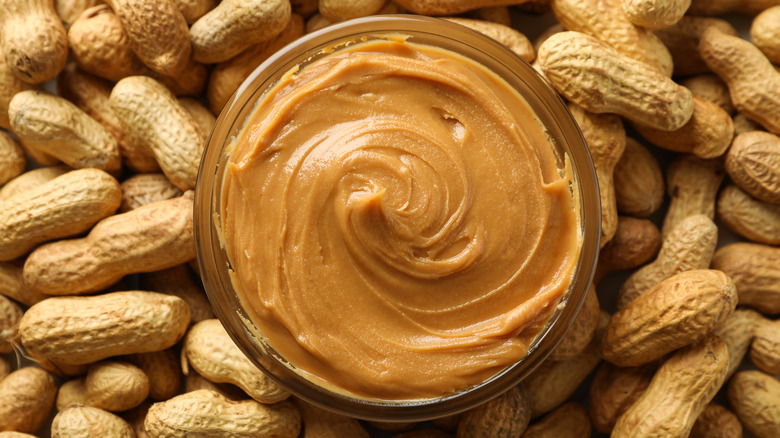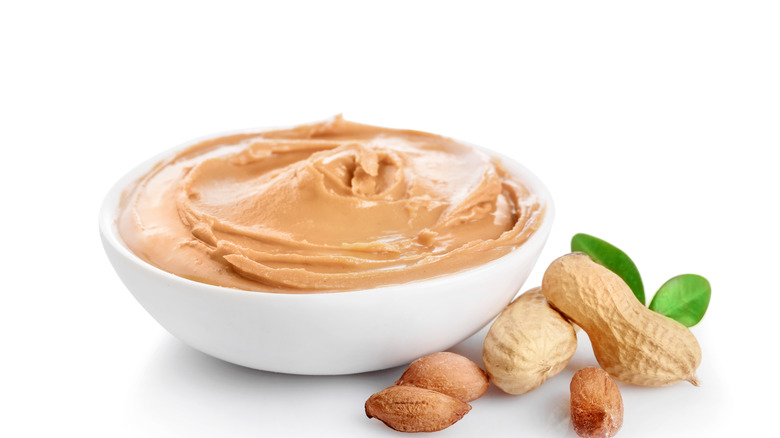You'll Never Guess The Real Reason Peanut Butter Was Created
From being an integral part of a certain sandwich to being a pretty decent snack right out of the jar, peanut butter has long been a staple of the American pantry. Whether it's peanut butter sandwiches, peanut butter cookies, or even peanut butter soup (which, according to feel good foodie is a real West African dish), it's certainly no wonder why peanut butter has found itself a home in the cupboards of America's kitchens. But have you ever looked at your jar of Jiff or Skippy and wondered, "What other secrets does this peanut-based spread hold?"
While George Washington Carver was presumed to be the inventor of peanut butter, the National Peanut Board tells us that he actually had nothing to do with the spread, though Carver is well-recognized for his work with peanut plants. The true inventor of peanut butter — or at least, a peanut paste — was Marcellus Gilmore Edson, a Canadian chemist who patented his invention in 1884. In 1895, another character familiar with foodstuffs, Dr. John Harvey Kellogg patented his own peanut butter made from raw peanuts.
But it would seem that the food item wasn't invented simply to smear it on a peanut butter and jelly sandwich. Instead, it is believed that the truth behind peanut butter's creation may be rooted in what could only be described as "health supplements."
Peanut butter was a protein substitute
As the National Peanut Board explains, there is a theory that a physician in St. Louis developed peanut butter as sort of a protein substitute for his older patients, who in their old age, had lost most of their teeth and were unable to chew. The peanut spread would provide the protein they would be missing from a now-meatless diet. In 1904, peanut butter made its official debut at the World's Fair in St. Louis, thus beginning peanut butter's role as a beloved American spread for years to come.
But does the idea of peanut butter as a health food have any substance? Harvard Medical School explains that despite sometimes being labeled unhealthy, the saturated fat and sodium in peanut butter aren't as unhealthy as one may think in most cases. While it's likely best to consume in moderation, peanut butter has as much saturated fat as olive oil with a potassium count that makes up for the amount of sodium. In fact, two tablespoons of peanut butter provide a variety of minerals and vitamins, such as protein, niacin, magnesium, and vitamin B-6 (via Medical News Today), making it a relatively healthy light snack if eaten every so often.
If you want to try and incorporate a bit more of the spread into your diet, there's a wide variety of delicious and creative ways to use peanut butter.

